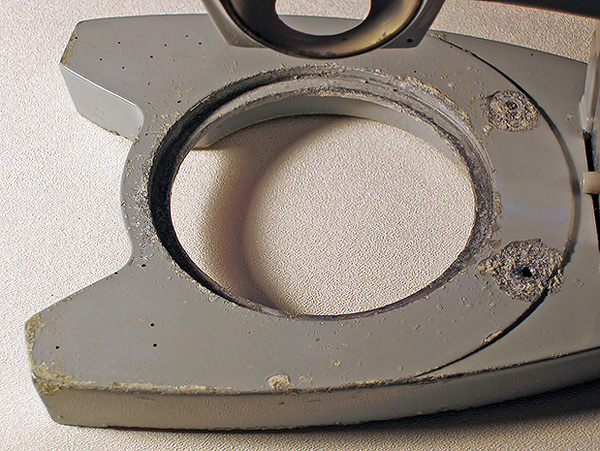
Photo 1
|
Restoring a stereo microscope base with reverse electrolysis by Ian MacGregor, Burnaby, BC, Canada |
I'm restoring a junked AO Cycloptic stereo microscope to working order for a friend and was presented with a badly corroded base ( Photo 1 ). These 'scopes are made from a zinc alloy called Zamack ( Mazack ) and I didn't want to use any harsh chemicals that would further damage the base. Taking a cue from archaeologists I successfully employed a technique called "reverse" electrolysis using a 5% solution of sodium carbonate ( washing soda ) as an electrolyte and a 12 volt battery charger as a power supply ( Photo 2 ).

Photo
1
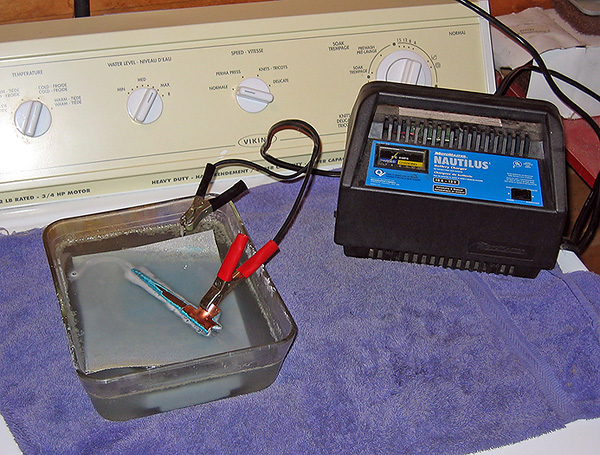
Photo 2
Note that the negative terminal of the charger ( black ) is connected to the microscope base and the positive terminal ( red ) is connected to a suitable sacrificial anode. A carbon anode would have been ideal but the short length of copper pipe and tee was handy so I used this instead.
To prevent contact of the anode with the microscope base and an electrical short I used a piece of plastic screen ( Photo 3 ). Two small alligator clips were ganged together and clipped onto the base so that the battery charger clamp ( negative / black ) would stand clear of the electrolyte. To make up an approximate 5% sodium carbonate ( washing soda ) solution, mix one heaping teaspoon with every 100 ml. of de-ionized or distilled water ( or if you live in Vancouver, Canada - ordinary tap water ).
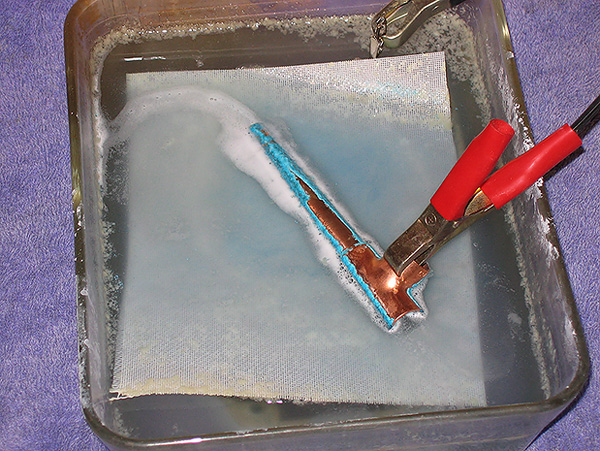
Photo 3
The base was "zapped" for 4 hours total. The charger was turned off every hour, the base removed and washed and any "crusty bits " of corrosion scrapped off and the surface scrubbed with a small stainless steel brush. Photos 4 and 5 show the top and bottom views of microscope base after this easily done and safe treatment. The minor amount of copper plating that the wire brushing did not remove is from the sacrificial anode and is of no consequence.
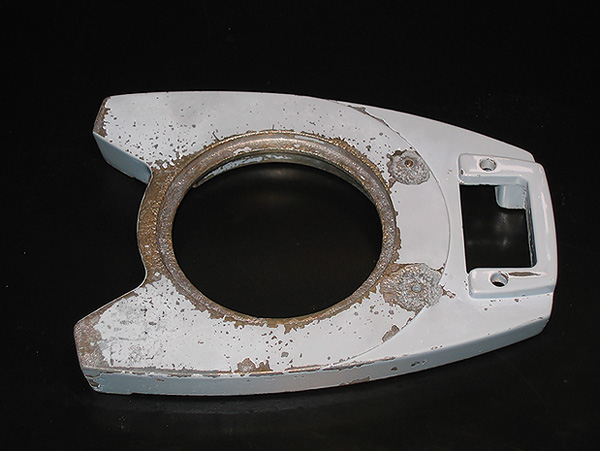
Photo 4
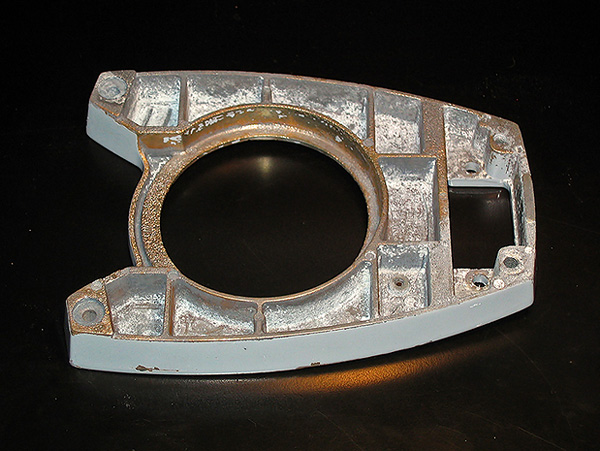
Photo 5
All comments to the author Ian MacGregor are welcomed.
Microscopy UK Front Page
Micscape Magazine
Article Library
Please report any Web problems or offer general comments to the Micscape Editor .
Micscape is the on-line monthly magazine of the Microscopy UK website at Microscopy-UK .